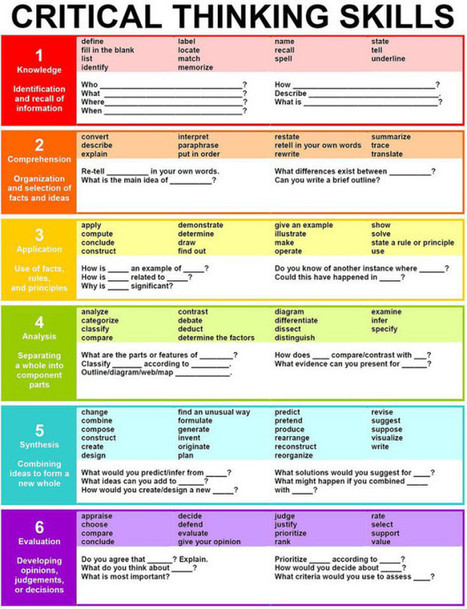Nicholas Carr writes: "So you bought that new iPhone. If you’re like the typical owner, you’ll be pulling your phone out and using it some 80 times a day, according to data Apple collects. That means you’ll be consulting the glossy little rectangle nearly 30,000 times over the coming year. Your new phone, like your old one, will become your constant companion and trusty factotum — your teacher, secretary, confessor, guru. The two of you will be inseparable."
Research and publish the best content.
Get Started for FREE
Sign up with Facebook Sign up with X
I don't have a Facebook or a X account
Already have an account: Login
How do we define it, teach it, know it when we see it?
Curated by
Mary Reilley Clark
 Your new post is loading... Your new post is loading...
 Your new post is loading... Your new post is loading...
Dovid's curator insight,
October 1, 2013 9:12 PM
Bloom's Taxonomy simplified for developing thinking skills! 
Rudolf Kabutz's curator insight,
October 3, 2013 12:30 PM
Thanks, dear Fabienne, this is really insightful. In teaching one might want to progressively move from one level to the next, yet I would expect that one could work on all levels simultaneously. How much more would children learn when they ask their 3-year-old, "What do you think ..." 
Cassandra's curator insight,
October 11, 2013 11:57 AM
Good information for teaching or treatment plans. |
|













There is so much to digest in this article. When we think we don't need to remember facts because we have Google, are we changing the way we think? The most thought-provoking quote: "As the brain grows dependent on the technology, the research suggests, the intellect weakens."
This article pairs well with Cal Newport's book Deep Work and makes me want to break up with my phone--a bit. I will at least set it to silent and try to leave it out of the room when I work.